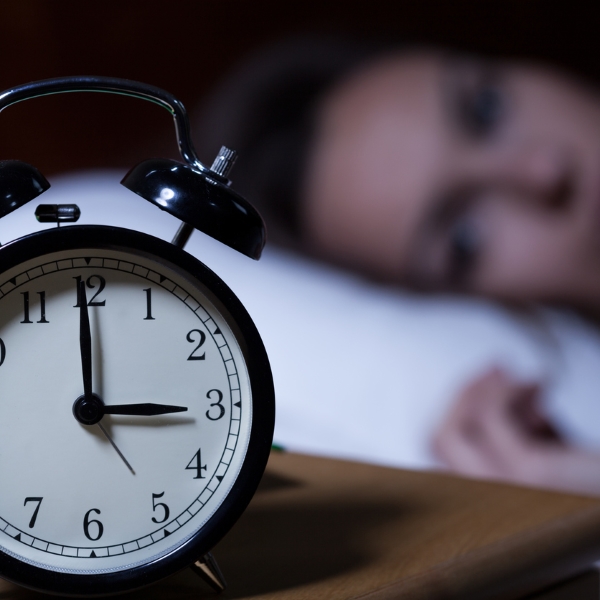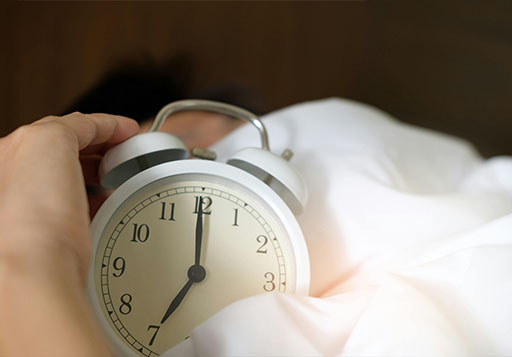What is Insomnia?

Author: Jonathan Warren
Ever found yourself tucked up in a comfy warm bed, with work put away for the day, no noise to distract you, but still unable to sleep? If you have, you might find that you’re suffering from insomnia.
Insomnia is a very complex sleep issue which in short, means that if diagnosed, you’re having trouble sleeping for no tangible external reason. It can affect both falling asleep in the first place, as well as staying asleep once you do have success in drifting off, and can be caused by any number of factors.
From existing medication to depression and anxiety, and arthritis to chronic pain - there is no easy explanation as to why you might suffer from insomnia. But no matter how it impacts you, if you’ve ever suffered with it, you know it can leave you feeling less than great.
 Types of insomnia
Insomnia can typically be categorised into two types, acute and chronic insomnia. Acute insomnia is very, very common - it’s highly likely that the majority of adults will have experienced this at least once in their lives.
Acute insomnia
Acute insomnia describes the occasional ‘bad night’ of sleep that we’re all prone to having. It could be the night before a big exam or meaningful life event, or it could happen if you’ve just heard something upsetting.
Even if this type of insomnia lasts for a short spell, it’s still considered acute if it (generally speaking) passes within a couple of weeks. Acute insomnia can also be labelled as primary insomnia, and means that it’s typically isolated from any other health conditions.
Chronic insomnia
Chronic insomnia describes something altogether more severe. The term chronic gets applied if you’ve had major problems sleeping for three or more nights a week, for a duration of at least three months. At this point, insomnia can begin to take over your life. Fatigue can begin to dictate what you do in your days, and can often impact your mood - which in turn can lead to wider relationship problems with those around you.
This type of insomnia can also (but not always) occur as secondary insomnia, which is associated with ongoing and preexisting health conditions like asthma, depression, cancer, or as a side effect of medication.
If at any point you’re concerned about your sleeping, do speak to your GP. They are best placed to talk through your sleeping habits with you, suggest positive changes, and can refer severe cases for insomnia-specific cognitive behavioural therapy.
Types of insomnia
Insomnia can typically be categorised into two types, acute and chronic insomnia. Acute insomnia is very, very common - it’s highly likely that the majority of adults will have experienced this at least once in their lives.
Acute insomnia
Acute insomnia describes the occasional ‘bad night’ of sleep that we’re all prone to having. It could be the night before a big exam or meaningful life event, or it could happen if you’ve just heard something upsetting.
Even if this type of insomnia lasts for a short spell, it’s still considered acute if it (generally speaking) passes within a couple of weeks. Acute insomnia can also be labelled as primary insomnia, and means that it’s typically isolated from any other health conditions.
Chronic insomnia
Chronic insomnia describes something altogether more severe. The term chronic gets applied if you’ve had major problems sleeping for three or more nights a week, for a duration of at least three months. At this point, insomnia can begin to take over your life. Fatigue can begin to dictate what you do in your days, and can often impact your mood - which in turn can lead to wider relationship problems with those around you.
This type of insomnia can also (but not always) occur as secondary insomnia, which is associated with ongoing and preexisting health conditions like asthma, depression, cancer, or as a side effect of medication.
If at any point you’re concerned about your sleeping, do speak to your GP. They are best placed to talk through your sleeping habits with you, suggest positive changes, and can refer severe cases for insomnia-specific cognitive behavioural therapy.
 The tell-tale signs of insomnia
The NHS details the main symptoms of insomnia as:
The tell-tale signs of insomnia
The NHS details the main symptoms of insomnia as:
 Types of insomnia
Insomnia can typically be categorised into two types, acute and chronic insomnia. Acute insomnia is very, very common - it’s highly likely that the majority of adults will have experienced this at least once in their lives.
Acute insomnia
Acute insomnia describes the occasional ‘bad night’ of sleep that we’re all prone to having. It could be the night before a big exam or meaningful life event, or it could happen if you’ve just heard something upsetting.
Even if this type of insomnia lasts for a short spell, it’s still considered acute if it (generally speaking) passes within a couple of weeks. Acute insomnia can also be labelled as primary insomnia, and means that it’s typically isolated from any other health conditions.
Chronic insomnia
Chronic insomnia describes something altogether more severe. The term chronic gets applied if you’ve had major problems sleeping for three or more nights a week, for a duration of at least three months. At this point, insomnia can begin to take over your life. Fatigue can begin to dictate what you do in your days, and can often impact your mood - which in turn can lead to wider relationship problems with those around you.
This type of insomnia can also (but not always) occur as secondary insomnia, which is associated with ongoing and preexisting health conditions like asthma, depression, cancer, or as a side effect of medication.
If at any point you’re concerned about your sleeping, do speak to your GP. They are best placed to talk through your sleeping habits with you, suggest positive changes, and can refer severe cases for insomnia-specific cognitive behavioural therapy.
Types of insomnia
Insomnia can typically be categorised into two types, acute and chronic insomnia. Acute insomnia is very, very common - it’s highly likely that the majority of adults will have experienced this at least once in their lives.
Acute insomnia
Acute insomnia describes the occasional ‘bad night’ of sleep that we’re all prone to having. It could be the night before a big exam or meaningful life event, or it could happen if you’ve just heard something upsetting.
Even if this type of insomnia lasts for a short spell, it’s still considered acute if it (generally speaking) passes within a couple of weeks. Acute insomnia can also be labelled as primary insomnia, and means that it’s typically isolated from any other health conditions.
Chronic insomnia
Chronic insomnia describes something altogether more severe. The term chronic gets applied if you’ve had major problems sleeping for three or more nights a week, for a duration of at least three months. At this point, insomnia can begin to take over your life. Fatigue can begin to dictate what you do in your days, and can often impact your mood - which in turn can lead to wider relationship problems with those around you.
This type of insomnia can also (but not always) occur as secondary insomnia, which is associated with ongoing and preexisting health conditions like asthma, depression, cancer, or as a side effect of medication.
If at any point you’re concerned about your sleeping, do speak to your GP. They are best placed to talk through your sleeping habits with you, suggest positive changes, and can refer severe cases for insomnia-specific cognitive behavioural therapy.
 The tell-tale signs of insomnia
The NHS details the main symptoms of insomnia as:
The tell-tale signs of insomnia
The NHS details the main symptoms of insomnia as:
- Finding it difficult to fall asleep
- Lying awake for long stretches of time in the night
- Waking too early, and not being able to drop back off
- Waking frequently throughout the night
- Not feeling well-rested and refreshed when you do wake up
- Being unable to nap during the day, regardless of how tired you feel
- Feeling fatigued and irritated during the day, which impacts your ability to concentrate



